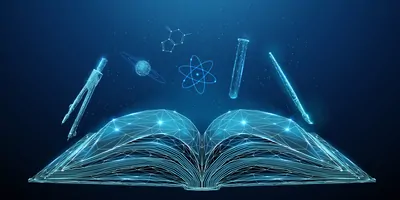To continuously improve the quality of research funded by the National Institutes of Health, five new grants will launch the Initiative to Improve Education in the Principles of Rigorous Research. This program will create an educational platform containing various training modules covering different aspects of scientific rigor—the strict application of the scientific method to ensure robust, unbiased research. Once established, this platform will be made freely available to researchers, their institutions, and the public. The effort is led by the Office of Research Quality (ORQ) at the National Institute of Neurological Disorders and Stroke (NINDS), part of NIH.
This initiative is part of NINDS’ focus on experimental rigor, good study design, and transparency in reporting—key components for ensuring high-quality, reproducible science. Based on a 2018 survey of institutions receiving training grants from NINDS, only five provided a dedicated course related to the principles of rigorous research.
“A free educational resource that is comprehensive, modular, and adaptable could serve as a ‘one-stop shop’ for institutions to build courses in experimental rigor based on their individual needs,” said Shai Silberberg, PhD, director of the NINDS ORQ.
Key to the initiative is the Creating an Educational Nexus for Training in Experimental Rigor (CENTER) award, which will support the building, evaluating, and disseminating of a user-friendly, open-source platform to host educational content. The recipient of this award will also direct the initiative, host annual meetings of award recipients, guide the other awardees as they develop educational materials, as well as evaluate and disseminate the resource.
The CENTER grant has been awarded to the University of Pennsylvania in Philadelphia. The principal investigator for the grant, Konrad Kording, PhD, and his team developed the NeuroMatch Academy, and they will bring that experience to this initiative as they build a platform that will bring high-quality teaching materials to the broader scientific community. The platform will allow for real-time feedback from the community that can be translated into ongoing enhancements of the modules. This bi-directional approach will help encourage participation from scientists and institutions that will increase the success of the initiative.
The other four awards are a part of the Materials to Enhance Training in Experimental Rigor (METER) funding announcement—projects that will develop the educational materials in collaboration with, and ultimately hosted by, CENTER. These modules will include topics such as addressing biases in research; logical fallacies around causality; how to develop hypotheses; designing literature searches; identifying experimental variables; and reducing confounding variables in research.
These five awards are just the first step of this initiative. In addition to the resource building made possible through this funding, pending the availability of funds. It is anticipated that additional METER grants will be awarded in the future, further increasing the size and scope of the content hosted by CENTER. The next receipt date for METER applications is Oct. 11, 2022.
- This press release was originally published on the National Institute of Neurological Disorders and Stroke website












